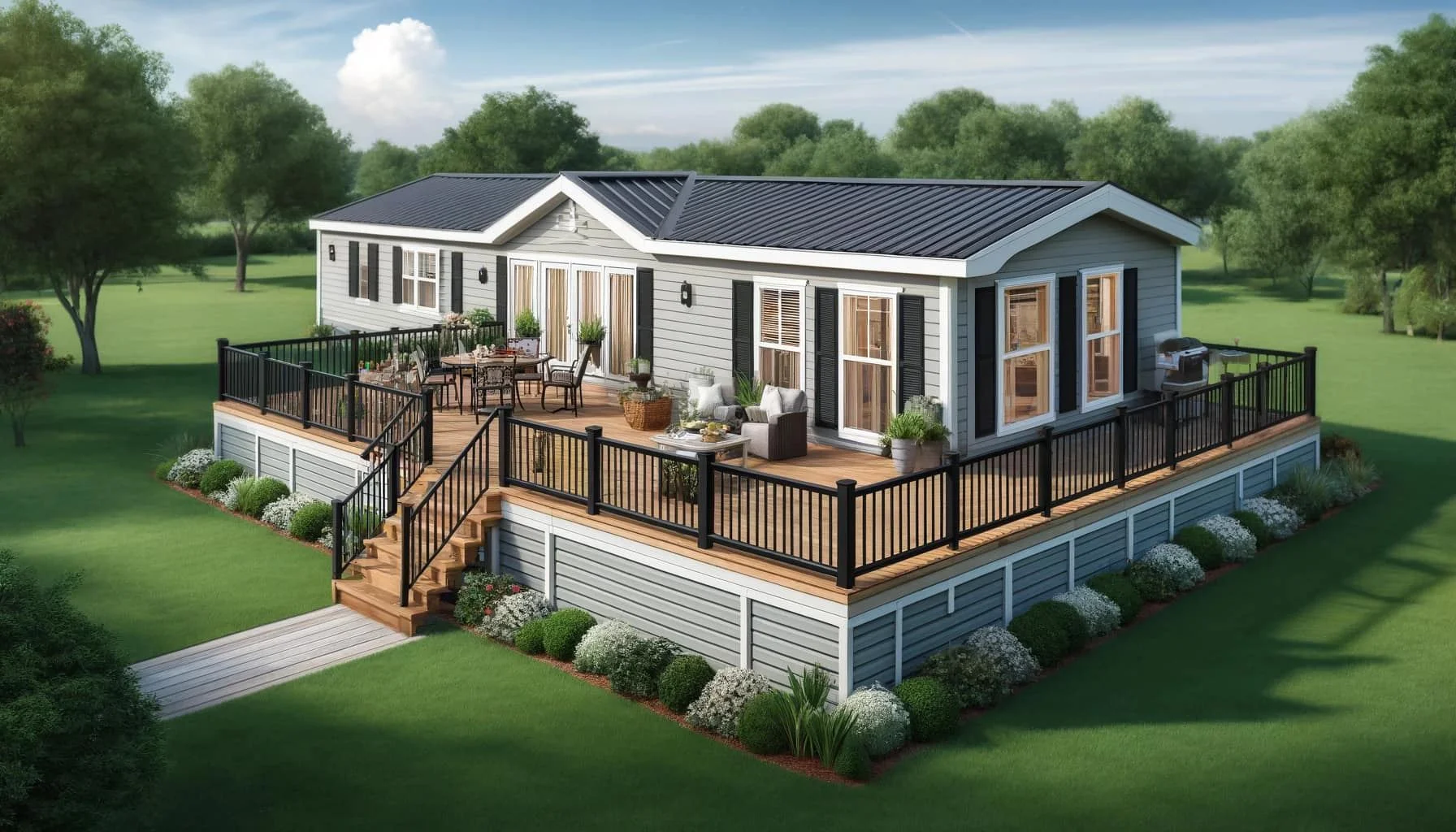
1. Affordability
Manufactured homes typically cost much less than traditional site-built homes, both in terms of purchase price and monthly payments. For many buyers, this means owning a home sooner without being buried in debt.
2. Modern Features and Designs
Today's manufactured homes can be stylish, energy-efficient, and customizable. Open floor plans, luxury kitchens, spacious bathrooms, and even smart home features are often available — sometimes rivaling what you'd find in a stick-built home.
3. Faster Move-In Time
Because they’re built in factories and transported to the home site, manufactured homes are usually ready much quicker than traditional new builds. This can be a major advantage if you need a place to live sooner rather than later.
4. Financing Options Are Available
There are loan programs specifically designed for manufactured homes — including FHA, VA, USDA, and conventional financing — that can offer low down payment options and competitive interest rates, especially if the home is attached to owned land.
5. Energy Efficiency
Newer manufactured homes often meet high energy standards, meaning lower utility bills and a smaller environmental footprint.
1. Land Considerations
If the home is placed on leased land (like in a mobile home park), you won't build equity in the land — and monthly lot rent could increase over time. Buying land adds value, but it also adds upfront costs and complexity.
2. Financing Can Be More Complex (Sometimes)
If the manufactured home isn’t permanently affixed to land or if it’s an older model, financing options can be more limited. In some cases, buyers may need a chattel loan, which typically has higher interest rates than a traditional mortgage.
3. Depreciation Concerns
While modern manufactured homes can hold or even increase in value, especially when placed on owned land, some older homes or homes in less desirable areas may depreciate over time — similar to a vehicle.
4. Zoning and Placement Restrictions
Certain cities, towns, or homeowners associations have restrictions on where manufactured homes can be placed, and you may need to navigate additional permitting or inspection processes.
5. Perception and Resale Value
Unfortunately, manufactured homes still carry some outdated stigma, which can sometimes make resale a little more challenging compared to traditional homes — although this perception is slowly changing.
Buying a manufactured home can be an incredible way to become a homeowner at a lower cost, but it’s important to make sure you understand the ins and outs before jumping in.
If you’re thinking about financing a manufactured home — whether it’s a brand-new model or a pre-owned home — I’d be happy to walk you through your options, answer your questions, and help you make the best decision for your future.
Ready to explore what’s possible? Let’s talk!
Whether you're buying your first home or your dream home, we have a mortgage solution for you. Get your custom rate quote today.
We're committed to helping you refinance with the lowest rates and fees in the industry today. Getting started is quick and easy.
Our secure application is a few quick questions that takes about 7-10 minutes to complete and is required for a “Pre-Approval”. Get started today!
Mark Crunk | NMLS #2267612 | Barrett Financial Group, L.L.C. | NMLS #181106 | 275 E Rivulon Blvd, Suite 200, Gilbert, AZ
85297 | AK AK181106 | CO | MO | NC B-203722 | Equal Housing Opportunity | This is not a commitment to lend. All loans are
subject to credit approval. | nmlsconsumeraccess.org/EntityDetails.aspx/COMPANY/181106